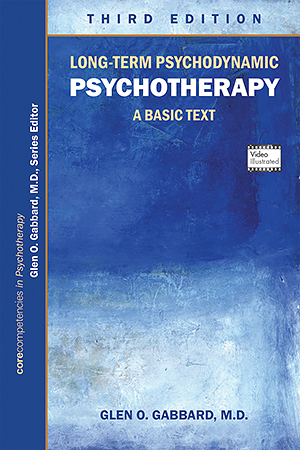Chapter 1.Key Concepts
Sections
Excerpt
As this grateful patient reveals, often one cannot fully know the value of long-term psychodynamic psychotherapy (LTPP) until one is looking back on the process as it nears completion. Entering into this form of treatment is daunting, and it often goes against the grain of one’s sense of safety. Many patients know intuitively, though, that briefer forms of therapy will not be able to provide them with the answers they long for and won’t allow sufficient time for a skilled psychotherapist to get to know them in the profound way that they wish to be known. Indeed, patient satisfaction appears to increase with increasing duration of therapy (Consumer Reports 1995). In an era of “quick fixes” and genetic reductionism, the value of long-term dynamic psychotherapy stands out.
Access content
To read the fulltext, please use one of the options below to sign in or purchase access.- Personal login
- Institutional Login
- Sign in via OpenAthens
- Register for access
-
Please login/register if you wish to pair your device and check access availability.
Not a subscriber?
PsychiatryOnline subscription options offer access to the DSM-5 library, books, journals, CME, and patient resources. This all-in-one virtual library provides psychiatrists and mental health professionals with key resources for diagnosis, treatment, research, and professional development.
Need more help? PsychiatryOnline Customer Service may be reached by emailing [email protected] or by calling 800-368-5777 (in the U.S.) or 703-907-7322 (outside the U.S.).



